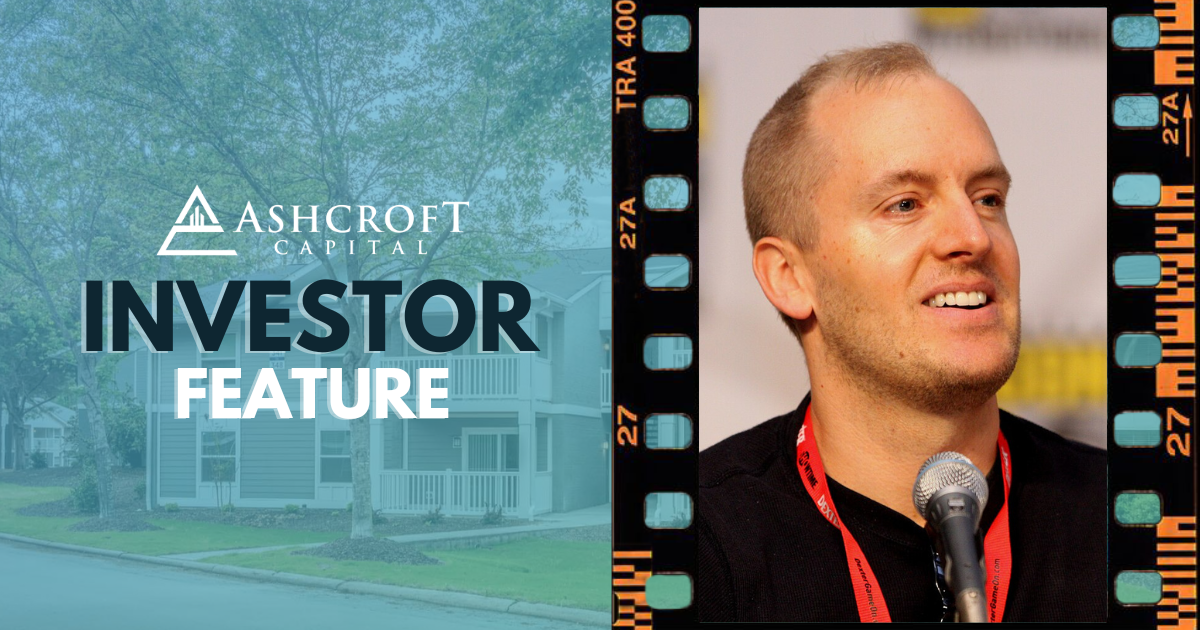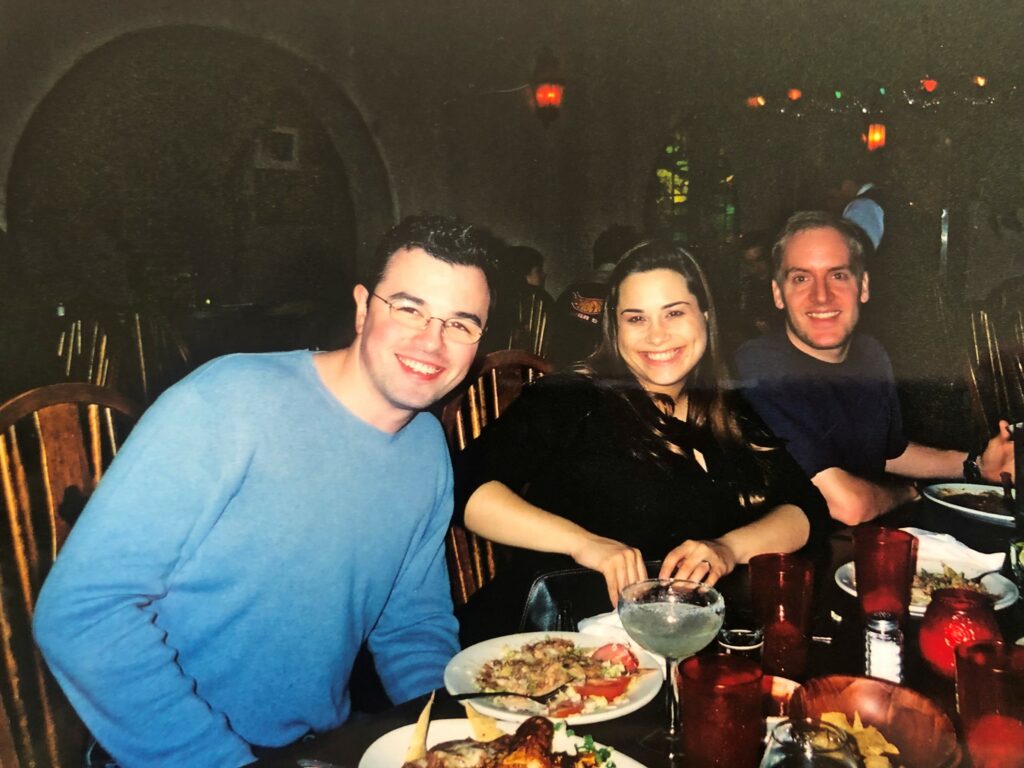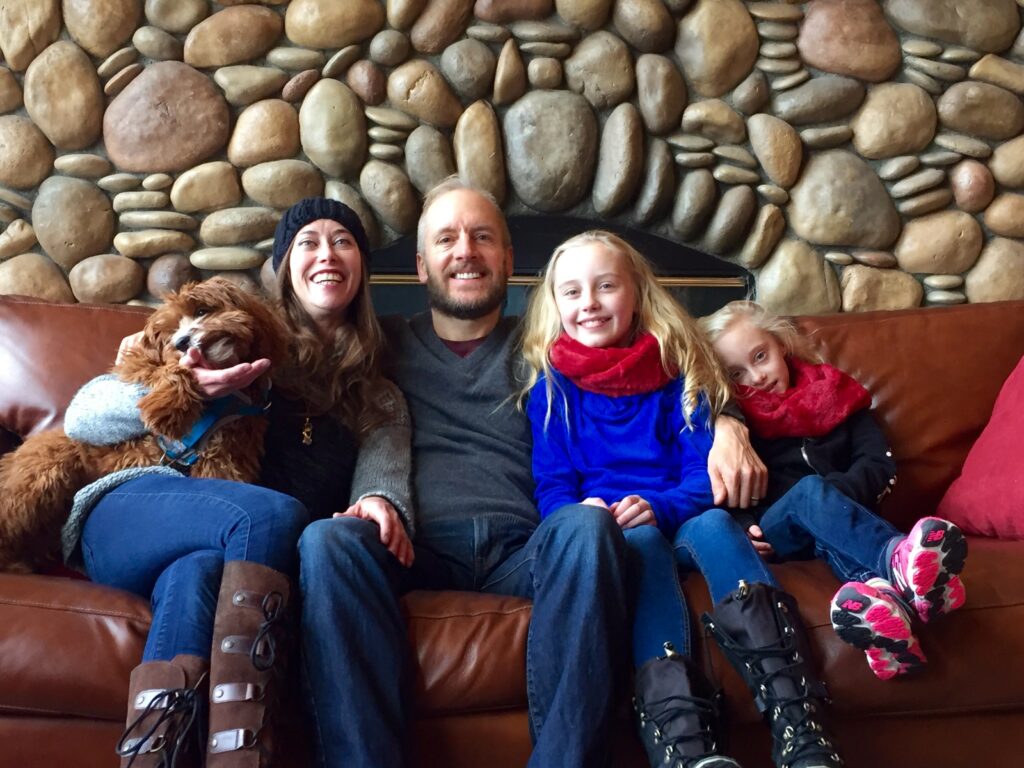October 3, 2023
“He handed me a VHS tape of the five-minute animated preview of what was to be Family Guy. I brought it home, put it in, and I thought the show was going nowhere. So that’s how I got into investing–I didn’t think Family Guy was going to last.”
When it comes to the art of both comedy and real estate investment, television and film writer and producer Mark Hentemann is no joke. Whether he’s creating a popular animated series, writing for hit movies like The Naked Gun, or spying his next investment opportunity, Mark combines intuition and passion (and a little bit of luck) to build on each success.
But Mark will be the first to admit he did not start at the top of entertainment or investing. His path in both fields is intertwined; he uses one to balance the other, giving Mark and his family a reliable source of income in an unpredictable world.
A Budding Writer and Investor
Mark’s story starts in Northern Ohio, just outside of Cleveland. “I went to college and majored in organizational communication, and I don’t even know what that was supposed to be,” he says of finding his footing in early life. “I liked drawing cartoons and I liked writing, so I spent a lot of my time at school doing that. I started a humor publication at Miami of Ohio, and that got me hired after graduation at American Greetings, a greeting card company.”
It was the late 1990s, and the company had just started a new department: alternative humor. “It was kind of hilarious because nobody knew what that was supposed to be. These were the days when everything was alternative, and no 20-something was buying greeting cards from American Greetings–so they were trying to capture that market.”
“Nobody bought them. We had a rack of cards in our department (like you’d see in CVS or Rite Aid) with our sales figures on it. It was almost a badge of honor if your card got a 0.0 because only grandmas were shopping for cards anyway.”
“I had never taken an art class in my life and I didn’t fancy myself as a writer, but I got to do this stuff, and I was getting paid for it,” remembers Mark. But he knew the job wasn’t forever, and soon he decided to look for an agent to break into the entertainment business. Countless phone calls and one lucky submission to the William Morris mailroom later, he got a call from a novice agent who loved his material.
It wasn’t long before his agent would call Mark again.
“I didn’t tell you this, but I forwarded your cards to David Letterman. They want to meet you. How soon can you get up to New York?”
Mark arrived the next day, flying on miles loaned to him by his mother, and landed his dream job writing for The Late Show with David Letterman.
Creating the Iconic
Between writing quips for “The Top 10” and bits for the opening monologue, Mark would grab lunch with his colleagues. “The writers would eat at this place that we all called ‘The Soup Nazi’ down the street. It was this lunatic soup guy in New York. Then one of the writers on staff went on to write for Seinfeld. And that, of course, became one of the most well-known episodes of the show.”
After “The Late Night Wars,” Mark and his agent agreed that moving to the West Coast was the best next step for Mark’s career. “She got me an interview at Fox, because they were the only studio and network doing animation at the time. I pitched them a show, drew some pictures and the characters, and they liked it. They bought it in the room,” Mark recalls.
“They also said, ‘Hey, you should meet this other young guy who’s just starting an animated show for us. His name is Seth MacFarlane.’”
Upon meeting Seth, the two clicked, and Mark was invited to write for the newly created series: Family Guy. Mark could not have anticipated how successful the show would become, so he resolved to find a second source of income. “I didn’t know anything about LA,” he says. “I thought I was going to be broke and unemployed, and I needed some way to survive.”
That’s when Mark got his next big idea. “I’ll buy a duplex, and I’ll rent out half of it,” he said to himself, starting his long and fruitful relationship with real estate. His first tenant was a writer and voice actor for the series. “He made fun of me for being a landlord and I threatened to evict him on a weekly basis.”
Timing and Tenacity in Real Estate
Mark bought this first duplex in 1999 and fell in love with investing in real estate. “It went well–I fixed it up and I really enjoyed the physicality of real estate. Because as a writer, you spend most of your time in your own head. So I enjoyed taking breaks from writing to do real estate stuff.”
Looking back, Mark says he credits a number of factors with his early investment success.
“In the 90s, LA had a massive earthquake, riots, and then the tech bubble of the early 2000s. I think as a result, a lot of the values were beaten down when I got there. I got to ride the snapback of the economy. I was buying everything I could, pumping all of my money into real estate.”
Mark also grew passionate about helping others replicate his model. “I had become an annoying evangelist to all of my writer friends, saying ‘Do yourself a favor and invest in real estate!’” Eventually, his friends suggested that Mark find a property they could invest in together.
“At first it was like, ‘Hey, I found this deal, who wants to go in on it?’” says Mark. “There would be three or four writers and we’d all pitch money in, and then I’d go fix it up, operate it, and do all the work. And then it evolved into syndications.”
Moving On to Syndications
When Mark was hired to run the full production of Family Guy, he quickly learned he would need to adjust his investment strategy. “It was a big job, a busy job. That’s when syndications came on my radar.”
“There wasn’t really much back in the early 2000s,” explains Mark.
“I was putting together these investments with friends. I became known as the comedy guy who runs real estate deals on the side. Then I got to know Ashcroft through Bigger Pockets and started investing with them.”
Since then, Mark has continued working on his own syndication company, Quantum Capital, as well as investing passively in markets unfamiliar to him. Now an experienced operator himself, Mark knows how to take market cycles in stride, even using downturns to a strategic advantage.
During the 2008 crash, Mark had ten properties and admits being a little nervous. “The mood of the market was scary,” he remembers. “But the reality was that there was incredible opportunity. The Fed dropped interest rates to historic lows, so I decided to refi everything I had. I bought a lot during that time, too.”
A Syndication Safety Net
Thanks to Mark’s keen investment strategy, his family has a greater sense of financial freedom and peace of mind. Mark even has his children invest in Ashcroft, ensuring they won’t experience the anxiety that Mark has dealt with across his career. “For me, the big highlight of the proceeds is being able to step into a volatile industry. Growing up I never knew anybody who had made it in the entertainment business. It just seemed like it was not survivable. Discovering real estate investments gave me the confidence to stay in this field and not be anxious all the time.”
Even now, as entertainment writers are on strike, Mark remains confident. “We’ve been on strike going on four months–and your income stops. I’ve got a family of five of us right now, and I’m the only breadwinner. I’m so lucky that I invested in real estate and continue to invest both passively with other operators and on my own.”
Mark’s parting words ring true not just for the entertainment industry, but for everyone searching for financial stability in our current economy. “You never know what’s going to happen,” he says. “I think a lot of jobs are not as stable as they used to be. So, you’ve got to be an entrepreneur in some way.”
Read the September Issue of The Monthly Distribution here.![]()




